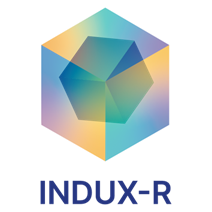
The INDUX-R program has kicked off dynamically with the cooperation of 18 organizations from Europe: CERTH-Greece, FORTH-Greece, CWI-Netherlands, UAU-Germany, UAB-Spain, EUT-Spain, FINT-Cyprus, NOVA-Greece, ORAMA-Switzerland, INOVA-Portugal, RINA-Italy, IDECO-Spain, CREAL-Switzerland, INVENTICS-Greece, UNIGE-Switzerland, EKTACOM-France, AdI-Italy, FSU-Germany.
The partners take part in a series of meetings and workshops, starting to explore ways to integrate Extended Reality (XR) technologies into various European industrial sectors. This pioneering project aims to empower individuals and spearhead the creation of innovative XR products and services, promising to bring substantial added value across a broad spectrum of applications, including:
- LiveMediaXR: Participation (on-site, online, on demand) with interaction in a virtual environment.
- X-Ray vision for Industry 4.0: Improving productivity and safety in industry.
- Virtual medical education: Training in medical procedures in a virtual environment.
- Large-scale 4D reconstruction of historical sites: Reconstruction of historical sites in 3D and 4D space - preservation of historical memory.
- Improved experience of watching NOMADE car races - exciting and immersive experience.
Human-centric approach
At the core of INDUX-R's philosophy is a human-centric approach to development. From the initial stages of user requirement gathering to the final ecosystem qualification, end-users are actively involved, ensuring that the innovations are not only technologically advanced but also ethically sound and aligned with European values.
Aiming to address both market demands and societal needs, INDUX-R is at the forefront of European industrial innovation, employing XR technologies to create immersive and impactful solutions. With a strong commitment to ethical standards and user engagement, INDUX-R is paving the way for a future where technology enhances human experiences in sustainable and meaningful ways.
About DIS
CWI’s DIS research group focuses on facilitating and improving the way people use interactive systems and how people communicate with each other. We combine data science with a strong human-centric, empirical approach to understand the experience of users. This enables us to design and develop next generation intelligent and empathic systems. We base our results on realistic testing grounds and data sets, and embrace areas such as ubiquitous computing, human-centered multimedia systems, and languages.
